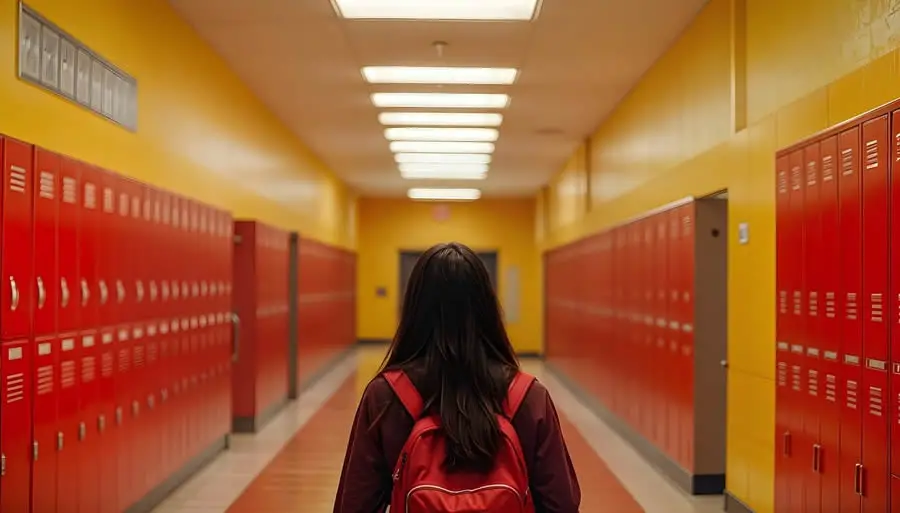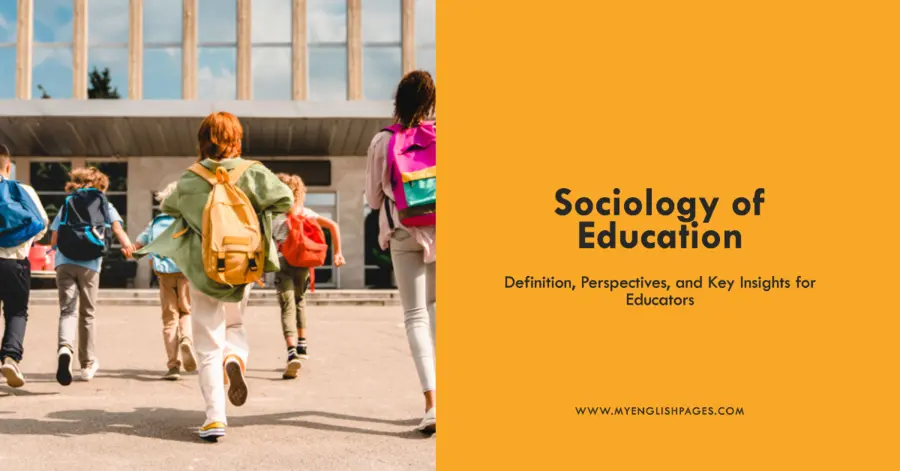Table of Contents
When we think about education, we often picture classrooms, teachers, and textbooks. But education is more than what happens inside four walls—it is deeply connected to society itself. The sociology of education helps us understand this connection. It looks at how education shapes individuals and, at the same time, how social forces shape education.
What Is the Sociology of Education?
The sociology of education is a branch of sociology that studies how education both shapes and is shaped by society. It examines how social institutions, cultural norms, and individual experiences influence educational processes and outcomes. This includes the way factors such as class, race, and gender affect access to education, the internal dynamics of schools and classrooms, and the broader role of education in maintaining or challenging social inequalities.
In short, it asks questions like:
- How does education contribute to social stability and cohesion?
- In what ways does it reproduce or reduce inequality between groups?
- How do everyday classroom interactions shape identity, meaning, and learning?
The goal is to understand education’s functions and consequences in the context of society as a whole.
A Brief Historical Context
The sociology of education emerged as a distinct field in the 20th century, alongside the expansion of mass schooling. As more children attended public schools, sociologists began studying how education both reflected and shaped society.
Early research focused on social integration, the reproduction of inequality, and classroom dynamics, laying the groundwork for the major theoretical perspectives we use today. Understanding this historical context helps educators see why schools function as both sites of social stability and arenas for change.
Areas of Interest in the Sociology of Education
The sociology of education covers both the big picture of how education relates to society and the everyday experiences of students and teachers. Key areas of study include:
- Social structures and inequality: How family background, socioeconomic status, race, and gender affect educational opportunities, achievement, and long-term social mobility.
- Socialization and culture: How schools transmit norms, values, and cultural knowledge to new generations, shaping identity and belonging.
- Classroom dynamics: How interactions between students, teachers, and administrators influence learning, self-concept, and the formation of school cultures.
- Curriculum and knowledge: Which knowledge and skills are valued in schools, whose perspectives are emphasized, and whose voices are excluded.
- Educational systems and policy: How school systems are organized, how policies are developed, and what impact they have on society.
- Global and societal change: How education adapts to globalization, technological change, and transformations in the world of work.
- Micro and macro perspectives: How individual experiences in classrooms connect to broader patterns of power, inequality, and institutional change.
These areas of interest provide the foundation for analyzing education through the three major theoretical perspectives: structural-functionalism, conflict theory, and symbolic interactionism.
The Three Theoretical Perspectives on Education

1. Structural-Functionalism: Education as Social Integration
Émile Durkheim and later functionalist thinkers saw education as vital to maintaining social order. Schools prepare individuals for their roles in society by teaching shared values, norms, and necessary skills.
- Examples: Morning assemblies that foster a sense of community, citizenship lessons that instill national values, and group projects that teach cooperation.
- Sociological Insight: Education promotes cohesion, belonging, and stability by integrating individuals into a collective.
- Limit: Overemphasis on stability can ignore injustice, treating existing norms as neutral when they may reflect privilege and exclusion.
2. Conflict Theory: Education and Inequality
Rooted in the ideas of Karl Marx and expanded by Pierre Bourdieu, conflict theory argues that education often reflects and reinforces inequality. Schools reward the cultural capital of dominant groups, labeling their ways of speaking and thinking as “intelligent,” while devaluing others.
- Examples: Tracking systems that separate students into “advanced” and “basic” levels, unequal access to extracurricular activities depending on funding, and standardized tests that may privilege students from certain linguistic or cultural backgrounds.
- Sociological Insight: Education is not a neutral pathway to success but a contested space where power, privilege, and inequality are reproduced.
- Limit: Focusing only on inequality can lead to cynicism and overlook how individuals and groups use education to create change.
3. Symbolic Interactionism: Education and Everyday Meaning
Symbolic interactionism focuses on how individuals use symbols and interactions to create and interpret meaning in their social world. People act based on the meanings they assign to things, and those meanings are shaped through social interactions. This perspective highlights the agency of the individual and the dynamic nature of society, which is constantly being constructed and reconstructed through everyday encounters in classrooms and beyond.
- Examples: Teacher expectations influencing student performance (self-fulfilling prophecy), peer interactions shaping identity, and students interpreting grades or classroom rituals differently based on personal meaning.
- Sociological insight: It shows how small, daily interactions—like teacher expectations, peer influence, or classroom routines—can strongly shape a student’s identity and educational path.
- Limits: By concentrating on micro-level interactions, it often overlooks larger structural inequalities (like class, race, or funding differences) that also affect education.
Here’s a visual comparison table for the three sociological perspectives in education
| Aspect | Structural-Functionalism | Conflict Theory | Symbolic Interactionism |
|---|---|---|---|
| Focus | Education as social integration | Education and social inequality | Individual agency and daily interactions |
| Concrete Examples | Morning assemblies, school rituals, citizenship lessons | Tracking systems, unequal access to extracurriculars, language bias in testing | Teacher expectations shaping performance, peer interactions, labels like “gifted” or “struggling” |
| Sociological Insight | Education integrates individuals and promotes social cohesion | Education reflects and reproduces power differences | Education is a dynamic, lived process shaped by individual meaning-making |
| Limit | Can overlook inequalities; may reinforce privilege | May underestimate education’s role in mobility and resistance | May overlook broader structural inequalities (like class, race, or funding differences). |
Bringing the Perspectives Together
In reality, no single perspective tells the whole story. A full understanding of education requires all three lenses:
- Structural-functionalism shows how schools promote order and shared values.
- Conflict theory reveals how education can reproduce inequality.
- Symbolic interactionism uncovers how meaning and identity are shaped in everyday interactions.
Together, these perspectives make the sociology of education a powerful tool for understanding not just what happens in classrooms, but how education is woven into the very fabric of society.
Why It Matters for Educators
Understanding the sociology of education is not just theoretical—it has direct implications for teaching and learning. By applying these perspectives, educators can make more informed decisions and create more equitable and effective classrooms.
- Structural-Functionalism: Teachers can design classroom routines, group activities, and school rituals that promote cohesion, belonging, and shared values. Recognizing the stabilizing role of education helps maintain a positive, orderly learning environment.
- Conflict Theory: Educators can critically reflect on how policies, tracking, or resource allocation may advantage some students over others. This perspective encourages teachers to advocate for equity and to adapt instruction to meet diverse student needs.
- Symbolic Interactionism: Understanding the impact of daily interactions allows teachers to shape student self-concept and motivation positively. Being aware of labeling, expectations, and peer dynamics helps create an environment where all students can develop agency and meaning in their learning.
If teachers integrate these insights, they can balance social cohesion, fairness, and individual empowerment. They will help students not only succeed academically but also grow as active, thoughtful members of society.
Contemporary Challenges in Education
Education today faces new and complex challenges that shape both policy and classroom practice. Key debates include:
- Digital Learning and Inequality: The rise of online learning and educational technologies has transformed how students access knowledge. However, unequal access to devices, high-speed internet, and digital skills can exacerbate existing social inequalities.
- Standardized Testing and Accountability: Standardized tests aim to measure student performance and hold schools accountable. Critics argue that excessive testing narrows the curriculum, increases stress, and can disadvantage students from marginalized backgrounds.
- Globalization and Skills for the Future: As economies become increasingly interconnected, schools are tasked with preparing students for a globalized world. This includes not only technical skills but also critical thinking, intercultural competence, and adaptability.
Understanding these contemporary challenges helps educators apply sociological insights to create more equitable, responsive, and forward-looking educational environments.
Conclusion: Key Takeaways for Educators
Understanding the sociology of education provides teachers with a deeper awareness of how schooling interacts with society. The main takeaways include:
- Education as social integration: Schools promote cohesion, shared values, and social stability, helping students navigate societal expectations.
- Education and inequality: Schools can reproduce social inequalities based on class, race, gender, and access to resources, making critical reflection and advocacy essential.
- Education as lived experience: Daily interactions, teacher expectations, and student meanings shape identity, motivation, and learning outcomes.
- Balancing perspectives: Effective teaching requires attention to both structural factors (rules, curriculum, social norms) and individual agency (student meaning-making and identity).
- Practical application: Educators can design inclusive, engaging classrooms that foster belonging, equity, and personal growth by integrating insights from all three perspectives.
- Ongoing reflection: Sociological awareness encourages teachers to continually reflect on their practices, adapt to student needs, and contribute to more just and effective educational experiences.
Frequently Asked Questions (FAQs)
What is the main concept of sociology of education?
The sociology of education examines how society and education influence each other. It explores how social structures, cultural norms, and individual experiences shape educational processes and outcomes, as well as how education contributes to social stability, change, and inequality.
What are the three functions of sociology of education?
1. Social Integration: Helping individuals understand and adopt societal norms and values.
2. Social Inequality Analysis: Studying how education can reproduce or challenge social hierarchies.
3. Identity and Meaning: Exploring how classroom interactions shape students’ self-concept, agency, and learning experiences.
Why do we study sociology of education?
Studying the sociology of education helps educators, policymakers, and researchers understand the broader social context of schooling. It guides decisions that promote equity, inclusion, and effective learning environments while revealing how education both maintains and challenges social structures.
What is the definition of education sociology?
Education sociology, or the sociology of education, is the academic field that studies how social institutions, cultural norms, and individual experiences influence educational systems, processes, and outcomes, and how education, in turn, affects society.
Related Pages
- Philosophy of Education for Teachers
- Classroom Management Strategies
- Classroom Management vs Behavior Management
- Class Management
- The Pygmalion Effect in Education
Further Resources & Suggested Reading
Classic Texts in Sociology of Education
- Émile Durkheim – Education and Sociology
Explores education’s role in social cohesion and the transmission of norms. - Pierre Bourdieu & Jean-Claude Passeron – Reproduction in Education, Society and Culture
Examines how schools reproduce social inequalities through cultural capital and habitus. - Karl Marx – Selected Writings on Education
Provides foundational insights on how social structures and class relations affect schooling. - George Herbert Mead – Mind, Self, and Society
Highlights the role of social interaction in shaping individual identity and learning.
Accessible Introductions / Overviews
- James S. Coleman – Equality of Educational Opportunity
A landmark study on how social factors impact student achievement. - Stephen J. Ball – The Education Debate
Discusses contemporary issues in education policy, inequality, and reform. - Michael W. Apple – Education and Power
Explores the intersection of education, policy, and social justice.
Teacher-Focused Resources
- Teaching Tolerance / Learning for Justice – Practical strategies for fostering equity in schools.
- The Center for Educational Research and Innovation (OECD) – Reports on global education trends and policies.
- Edutopia – Classroom Strategies – Ideas for integrating sociological insights into teaching practice.


